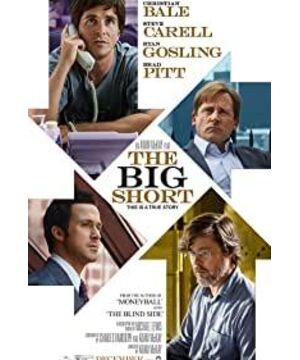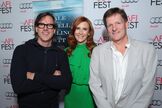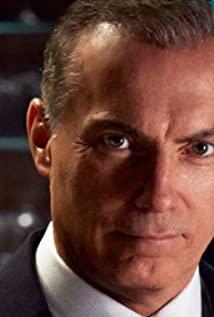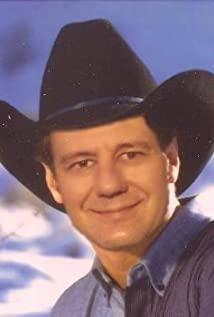Whoever Warren Buffett said, investing should be fearful when others are greedy and greedy when others are fearful. It turns out that in a highly developed capital market, the most profitable way is actually to be greedy when others are greedy - as long as the direction of greed correct.
The protagonists of this movie are like that. Since the world is mad, I will use their madness and wait for their demise. They took a big bet and got it right.
Yet it was still a gamble with no winners. Those who win are rich, but are they happy? No. The culprit portrayed in the film that drives the financial world crazy is ABS/MBS, and the various derivatives and guarantees based on these securities. In fact, in addition to speculative demand, another problem is that these derivatives are largely used as collateral for day-to-day repo transactions and commercial paper, and the crisis in the quality of such products directly reduces the amount of safe collateral, The resulting drying up of liquidity is also the cause of the Wall Street earthquake as a whole.
"How come no one see this coming?" The movie gives the impression that the whole of Wall Street and the Federal Reserve is only full of angry youths, geeks, rookie outsiders and Commander Ryan Gosling. The irony is ironic. In fact, many economists and market researchers have already noticed the housing bubble problem. The Federal Reserve actually started raising interest rates in 2005. Why such a sound has not attracted enough mainstream attention is more worth digging. Of course, it is not a disadvantage that the movie stops here, but it is a pity. Of course, the next step may be that what politicians should do is not what directors should do. Having said that, I would rather watch a movie that records the Federal Reserve Chairman and the Treasury Secretary being questioned by Congress, but it is estimated that it will not be made.
There are several memorable lines in the movie. One is that Commander-in-Chief told Baum that you guys look cynical but have faith in the system. The character, including Bell, also expressed disappointment with the rating system. All of these show that the financial market before the crisis was indeed highly dependent on participants' confidence in the health of the system and the trust chain between them in various senses. This also shows that once these foundations are broken in the future, the building will collapse to to what extent.
The crisis of asset-backed securities was incubated under such blind trust and structural problems. Regarding the issue of this packaged debt model, in addition to the fact that banks are less serious in reviewing lenders, economist Geanakoplos wrote an op-ed, Mortgage Justice Is Blind, explaining that MBS only emerged after the crisis. Another consequence of coming out: lots of foreclosures. Under the traditional loan model, if the borrower is unable to repay the loan, the bank directly responsible for the loan has an incentive to communicate with the customer one-on-one to renegotiate a mutually satisfactory terms, rather than direct foreclosure. Renegotiation is in the best interest for both parties. But when loans are packaged and sold in tiers, the holders or managers of any tier of products will not feel that renegotiation is profitable or directly responsible. Foreclosures are the profit-maximizing option, and countless lenders being kicked out of their homes and homeless are not on their radar.
This is of course a technical problem. The solution lies in redesigning the incentivize plan of investors and managers to get a mechanism that can better coordinate the interests of all parties. But this technical problem also embodies some more fundamental moral contradictions. Two of the most memorable lines in the whole film are the jubilant jumping of the duo in Las Vegas because they just made what may well be the biggest deal of their life, Brad Pitt's character says. , do you know what you are happy for? ! Do you realize what it means when you win the bet? ! disaster. It's soaring unemployment and people losing their homes! The two froze instantly.
This is of course not the meaning of criticizing the protagonists in the film to make a fortune in the country. After all, in terms of the nature of the market, the market can only be effective when everyone trades based on the information and judgment they have to maximize their own interests. However, the film also pointed out that in addition to the institutional flaws that caused the crisis, there are also immoral problems that can be seen everywhere in the contemporary capitalist financial market. The most straight-forward explanation is that Wall Street bankers are inherently morally depraved or something. This is certainly one of the reasons why it is important. But to a certain extent, when all you deal with every day is a bunch of numbers and models, the moral guilt is probably no stronger than the engineer who planned the Jewish transport for the Nazis. Once you lose your sense of how your work will touch people's lives, or feel like you're just a screw in a giant machine, expecting an individual's moral standard to save the system is basically nonsense, but an individual's ability to resist almost to the death not be alienated. Baum, an angry young banker, feels that way. Faced with his brother's psychological problems, his first reaction was to give money. Pitt's character says that for every one point increase in unemployment, there are tens of thousands more deaths (approximately, I don't remember exactly the number). For people who sit in the office all day working with data, numbers represent not only profits and losses, but also countless ordinary people who are bankrupt and displaced. It is a perception that is easily lost. And without this knowledge, trading is really no different from playing games. Lose a round and come back. Minions will automatically regenerate anyway.
Is there a solution? It is impossible to break up the capital market machine and return to the pastoral era. "Lombardy Street" describes that private banks are no longer suitable for the London financial market in the nineteenth century, let alone the global capital market today. While the capitalism described by Adam Smith may have a bit of old-fashioned decency to maintain morality, the capitalism of the contemporary Wall Street paradigm is far from it. This may not mean that the moral standard of human beings has deteriorated seriously. It may be that arm's length has the effect of paralyzing the judgment of moral responsibility, not to mention that sometimes arm's length is cross-border. Second, at least we need real politicians to oversee these institutions, the media to tell people what's going on, and the judicial system to hold someone responsible for whatever shit happening to ordinary people. That's what should be done. But even with academics doing this, the political system is still just so fucked up.
So the impressive third line came just in time. Baum said that in a few years, the people will do what they do when the economy crashes, blaming the immigrants and the poor. In 2019, we are still living in the aftermath of this great earthquake, and we find it to be true.
Are you optimistic? Not at all.
Other unrelated ideas.
Gosling's explanation of the ABS tranche with the analogy of building blocks is very impressive. In fact, theoretically, his building blocks are not right. Products such as ABS should be designed in reverse: the highest grade products are at the bottom, and the lowest grade products are at the top. Therefore, even if something really goes wrong with the mortgage pool, it should be absorbed by the junk-level product and should not compromise the quality of the Triple A product. For example, when the water level drops, the first thing to come out of the water should be the most rubbish product. Because junk-level products are inherently very risky, investors should fully understand this, so even losing money will not cause market turmoil. However, from what actually happened, the model that the Gosling's building would fall was right. The reason is that the mortgage pool problem can't really be contained in junk-level debt. And once BBB-rated bonds are suspected of being faulty, self-fulfilling expectations kick in: it doesn't even need a AAA-rated bond to actually be faulty, just enough people to suspect it's faulty and reject it is enough to kick Start a fire sale. This is a tail risk that has not been assessed. For the entire financial system, asset-backed securities are really the bottom building blocks, and this safe asset/collateral held in large numbers by institutional investors such as currency funds, pensions, etc. changes overnight. Become a hot potato. When you build the foundation on an unstable foundation, it is inevitable to see his building collapse.
So the quote from Mark Twain at the beginning of the movie is very relevant: It ain't what you don't know that gets you into trouble. It's what you know for sure that just ain't so.
The actor's complaints about breaking the fourth wall directly are also very hilarious. The Chinese Olympic gold medalist in quant. The Head of Ratings at Standard & Poor's who wears glasses like a blind man. What the American Securitization Forum is holding in Las Vegas is really, directly attacking the essence, and there is no need for the director to hack them (.
View more about The Big Short reviews











